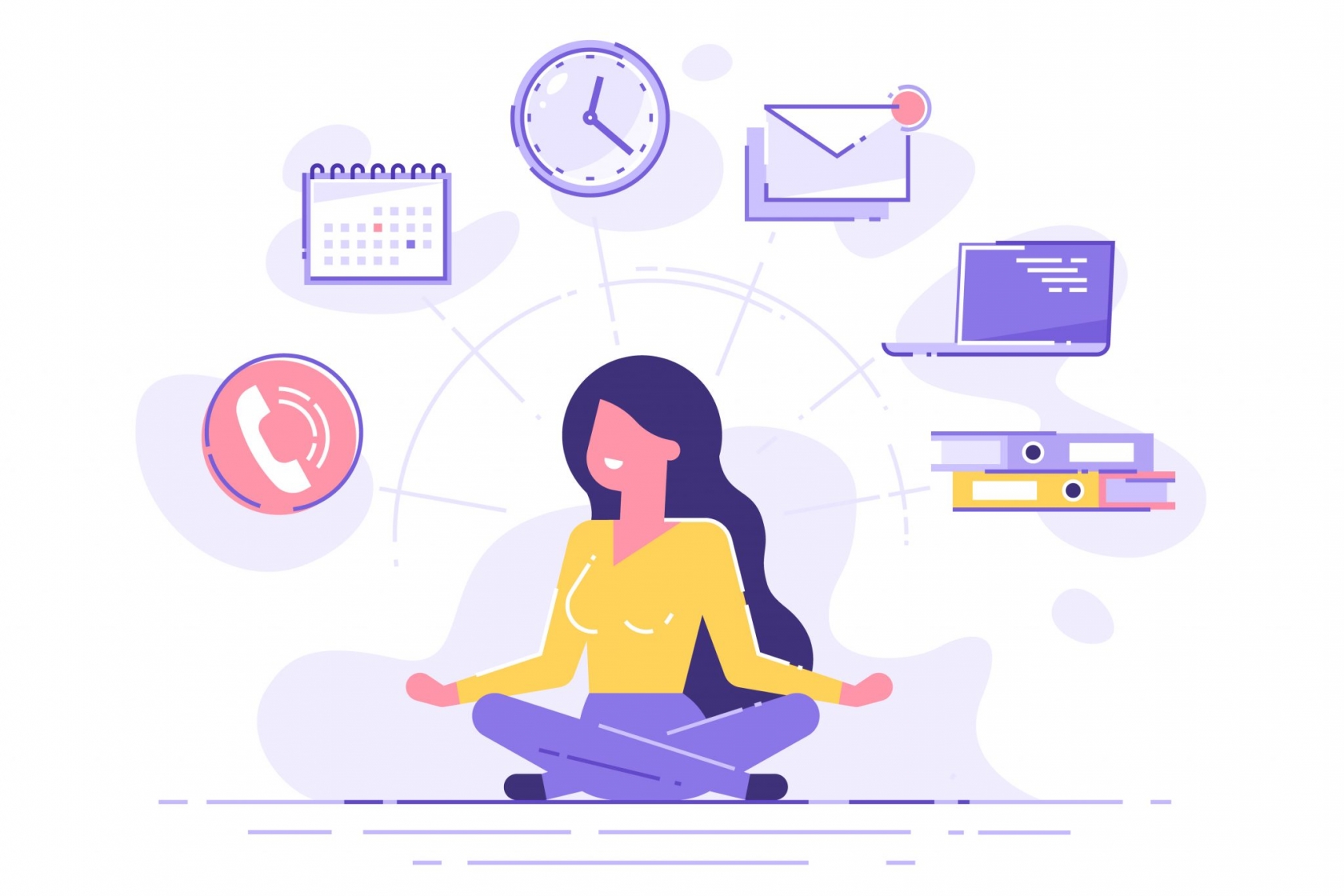Eustress – a state of ‘good stress’ that can help us to feel more focused and motivated – remains a mystery to most. But what is it? And how can it benefit us?
We all know that putting ourselves under too much stress is a pretty bad idea.
Whether we’re powering through overtime at work or juggling five different side-hustles at once, we’re all becoming more aware of how long-term, sustained high levels of stress can lead to burnout – a dangerous state of chronic stress which results in extreme exhaustion, feelings of negativity and decreased productivity, and could lead sufferers to develop mental health conditions, including anxiety and depression.
But while this increased awareness of the downside of chronic stress is very important, it seems that we might have lost sight of the bigger picture: that some stress can actually be good for us.
Let us explain. In the simplest of terms, we need to understand that not all stress is bad for us. While we commonly use the term “stress” to mean negative stress, there are actually two types of stressors: eustress (good stress) and distress (bad stress).
Simply understanding that fact could actually be super beneficial for your wellbeing: when we understand that stress can be good for us we are able to develop a mindset equipped to deal with challenges rather than fear them – and this can build resilience.
Each week, a collection of mental health experts and professionals will be answering and explaining some of the most asked about topics to do with your mental health and wellbeing.
This week, we’re explaining everything you need to know about eustress – and why simply remembering that good stress exists could be a bigger deal than you realise.
What is eustress?
Alexandra Lichtenfeld, Business Mentor at Client Matters
“People are increasingly talking about stress in the workplace and how this can impact our health and wellbeing. It’s usually discussed as a negative; most of us equate stress with something bad. But stress can at times also be a positive. Eustress is ‘good stress’ and is usually a product of nerves which can be brought on by something challenging.”
Dr. Sarah Brewer, Medical Director of Healthspan and author of Cut Your Stress
“A certain amount of stress is necessary to get up in the mornings and meet life’s challenges. Too little stress leads to boredom, while too much stress leads to distress. Eustress is the ideal state of balance between these two extremes.”
What makes eustress ‘good stress’?
Alexandra Lichtenfeld, Business Mentor at Client Matters
“Stretching yourself or working and living outside your comfort zone can be a good thing. Good stress can produce positive feelings of excitement, fulfilment, meaning and satisfaction; this can in turn lead to positive wellbeing. It enables you to feel more confident and empowers you to grow.”
Dr. Sarah Brewer, Medical Director of Healthspan and author of Cut Your Stress
“Eustress means you are on top of all the pressures in your life – work, family and social. You are getting enough stimulation and challenges to enjoy life, grow as a person and feel a sense of achievement at the end of each day.”
What are some examples of eustress?
Alexandra Lichtenfeld, Business Mentor at Client Matters
“With clients, I frequently talk about stretching boundaries, challenging oneself and coming out of your comfort zone, particularly in business relationships. Examples of eustress include:
- Physically: many of us challenge our bodies at the gym lifting weights, running, playing a sport, exceeding our previous abilities with strength, stamina and muscle growth for example – when we do this it makes us feel good.
- Acting: learning your lines and pushing yourself to go on stage, this is good stress and the ‘stage fright’ you may feel is the adrenalin rush.
- Personal challenges: learning new things can be challenging but it becomes invigorating once you get going and start to see small wins and build self-confidence which heightens your motivation.”
Dr. Sarah Brewer, Medical Director of Healthspan and author of Cut Your Stress
“One example of eustress would be having a to-do list that is comfortably long, so you can finish tasks you ‘must do’ within the allotted time.
“In a state of eustress you have enough resources to fit in the tasks you would like to do, including hobbies, exercise and down time, without having to work long hours or take work home with you. You have a good work-like balance.”
How can eustress help us at work?
Alexandra Lichtenfeld, Business Mentor at Client Matters
“It is useful for business owners and managers to recognise the two ends of the stress spectrum as it can make a world of difference to the people they employ, how they feel at work and their productivity. Whether it’s a greater workload or an individual feeling that they should be getting some sort of recognition, positive stress can help us through these challenging times.
“Work related projects that are challenging but realistic can encourage an individual to hone their existing skills and learn new ones. They will feel motivated, valued and their productivity will increase.”
Dr. Sarah Brewer, Medical Director of Healthspan and author of Cut Your Stress
“Eustress allows you to be a happy, fulfilled person who enjoys their work, is pleasant to be with and able to meet your own needs and those of others. You are not weighed down by work load, and less likely to be irritable.”
What are some ways we can experience/put ourselves through eustress?
Alexandra Lichtenfeld, Business Mentor at Client Matters
“Here are six easy ways to experience eustress:
- Being vigorous: Give 100% to exercise – this is essential, from walking to running to lifting weights or doing yoga; trying to do it better every time is a way to experience eustress.
- Learn something new: It doesn’t matter if it’s big or small, how long it takes or if you make mistakes along the way – it helps you move forward.
- Push yourself at work: This could mean developing a new skill or honing an existing skill, or simply trying a new way to be heard in a meeting.
- Getting to know someone better: This could be a friend, colleague or even a romantic interest. It’s amazing what you find out about people when you push yourself to do this.
- Learning about new cultures: When we travel, we are out of our comfort zone so push yourself to learn about the places you are travelling to.
- Any time we are out of or comfort zone: Whenever we are working towards something bigger, feel excited or challenged in a good way where we feel we have a level of control, this is good stress doing its job.”
Dr. Sarah Brewer, Medical Director of Healthspan and author of Cut Your Stress
“The amount of pressure you feel able to cope with can vary from day to day, depending on factors that are not always in your control e.g. sleeping badly because of external noise, traffic jams, your hormone balance, being in pain, or receiving bad news.
“Aim for balance in the things you can control. Exercise regularly. Limit your alcohol intake and have only one or two caffeinated drinks per day as the effects of caffeine mimic the stress response. Ensure you get enough water. Set realistic goals – tackle big problems one step at a time. Expect to make mistakes. Apologise, then learn from them. Talk more slowly and listen without interrupting. Avoid comparing yourself unfavourably with others.”
Images: Unsplash/Getty
Source: Read Full Article

